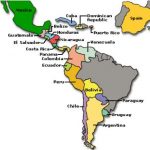While IESE students have a broad array of sectors open to them upon graduation, technology is one sector which has gained increasing attention in the recent years. Today we talk to a first year student who is looking for a career in the technology sector. Rupinder Singh (MBA 17) is a First Year MBA student at IESE and is the First Year Director of the Technology, Media and Telecommunications (TMT) Club.
How has been your experience at IESE so far and what are your plans for the summer?
My experience at IESE has been truly amazing and it has exceeded my expectations in all the relevant aspects – personal, academic, and professional. I find the case method really powerful. I have learned a lot from my peers in class and outside. The alumni I have interacted with have been very helpful with their insights about the industry. I got to travel a lot as well.
And I am really excited about the summer. I will be interning with Rakuten in their Tokyo Headquarters.
Tell us something about the presence of Technology sector at IESE
From the student body to the events to the cases taught in class, I’d say the Technology sector has a strong presence in IESE.
I have met students and alumni who have worked in literally every function of a Tech company – Product Management, Operations, Sales and Business Development, Marketing, Finance, Strategy, and Engineering among others. Having this breadth helps in cross-functional discussions.
Apart from the events which TMT club organizes, we have often had leaders from the tech industry speaking on campus as a part of the Global Leadership Series. The most recent one I attended was when the CEO of Amadeus spoke about Leadership in Times of Volatility and Change. Also, IESE hosts the largest student-run conference in Europe, Doing Good Doing Well, in which BlaBlaCar and Tesla were present among others this year.
Also, I am in the third term and have a course ‘Transforming Organizations and Markets with ICTs’ which analyses different business cases for technology adoption. The course is quite current and in fact one of the cases discussed was updated a week before the class. There are more subjects related to the sector as electives, which I plan to take in the second year.
Lastly, I would also want to highlight the geographic spread at this point. I was in Singapore last month and was amazed to see the engagement with tech companies and alumni. A similar level of involvement exists in Barcelona/Madrid, London, Dublin, and San Francisco.
Can you share something about the TMT Club?
The TMT Club is one of the largest clubs at IESE, with around 42% of current students being members. Like any other professional club at IESE, the TMT Club serves two basic purposes – creating or maintaining a link with the industry players and helping the students bridge the gap to add value for them.
The club is quite active and engages with not only the industry leaders but also with startups, which by the way garner a lot of interest on campus. There are some regular events, such as company visits, treks to Dublin, London, or networking drinks with companies and some ad-hoc events such as startup CEOs or company GMs coming to share their story with club members. I went on the Dublin trek last year and we visited companies such as Google, Microsoft, HubSpot and Web Summit.
Lastly, the club also facilitates the organization of company-sponsored competitions, which have been many in this academic year.
Do you think the Technology sector is relevant for MBAs?
The sector is relevant for anyone who wants to solve a problem for millions of people.
10 years back I couldn’t imagine that a monetary transaction could be made possible without a bank getting involved, or that a rocket would land on a floating drone ship. Such technology will not only have massive applications which change how we will live, but will entail a new set of challenges – both of which can use MBAs.
But personally, I like to look at the implications of technology for developing countries, and how technology has catalysed their problem solving process. Sellers in developing countries are competing to optimize and bring the lowest prices to consumers on online platforms. Schools are accessing high quality educational content over the Internet. There’s one statistic which I find really interesting – India’s mobile penetration is around 80% and around 20% of the people are below the poverty line.
And the possibilities and speed of the industry are what keep me hooked. As a payment gateway, you can be challenged by a newer player charging drastically lower commissions. To manage such growth opportunities, I believe MBAs are most suited. Regardless of the scale, technology companies need frameworks to manage innovation and competition, effective sales leaders to communicate the benefits and enable the adoption of technologies, marketers to bring them to the market, and product managers to connect the technology, business and users – all of which are areas where MBAs can add massive value.
What has been your observation on the Tech ecosystem in Barcelona so far?
Simply put, I think it is healthy and growing. I don’t like to use the phrase “next Silicon Valley” for any city because it takes its distinct flavour out of it. But I’ve been to San Francisco and Bangalore, and I think all the ingredients which make a city a thriving technology innovation hub are definitely present here. There are local universities supplying quality engineering, design, and business talent, accelerators enabling them to go one step further, VCs scouting for investments, an accommodating policy framework, infrastructure, and a history of successful exits.
And I would want to highlight the range here. Not only the startups, but big corporations too are thriving here. Scytl, which is innovating in election management via its secure online voting solutions, and the giant Amadeus (Headquartered in Madrid) are in the same ecosystem. Typeform (Saas), Privalia (online fashion), Wuaki.tv (Media), and Mint Labs (Health) show the diversity of companies in the city.
Thank you for sharing your experience, Rupinder, and good luck this Summer in Tokyo!







Thank you this is nice article.
Students have a wide range of path to explore in our century, great options and opportunities.